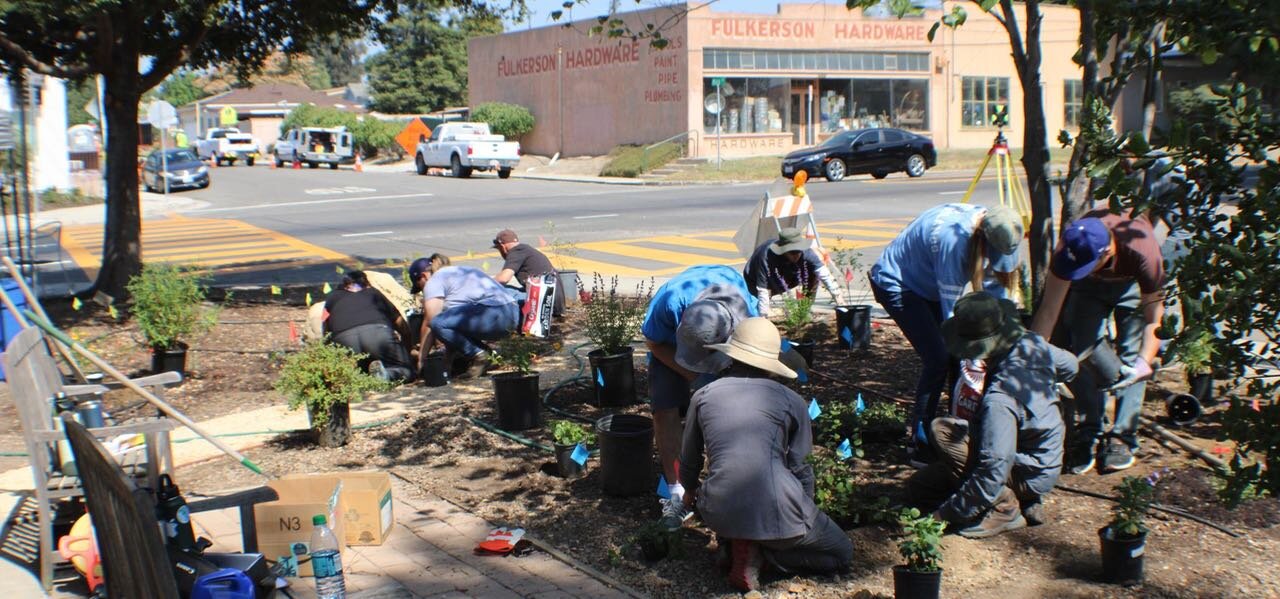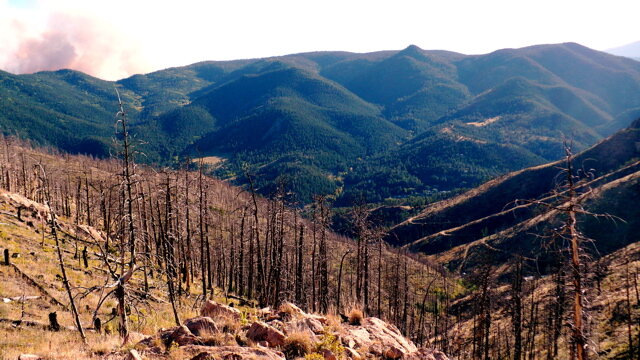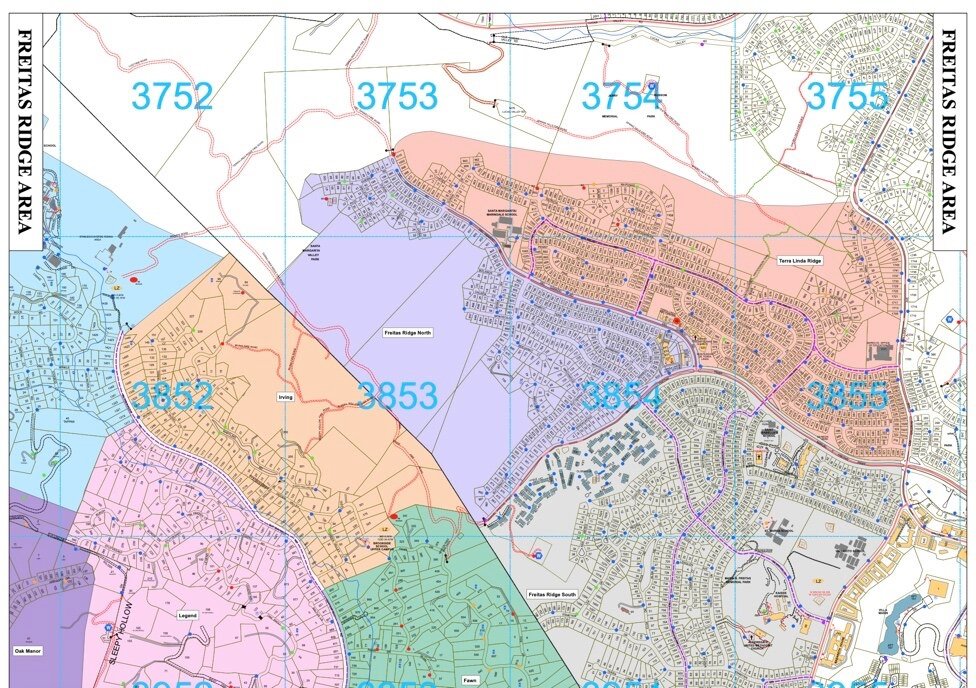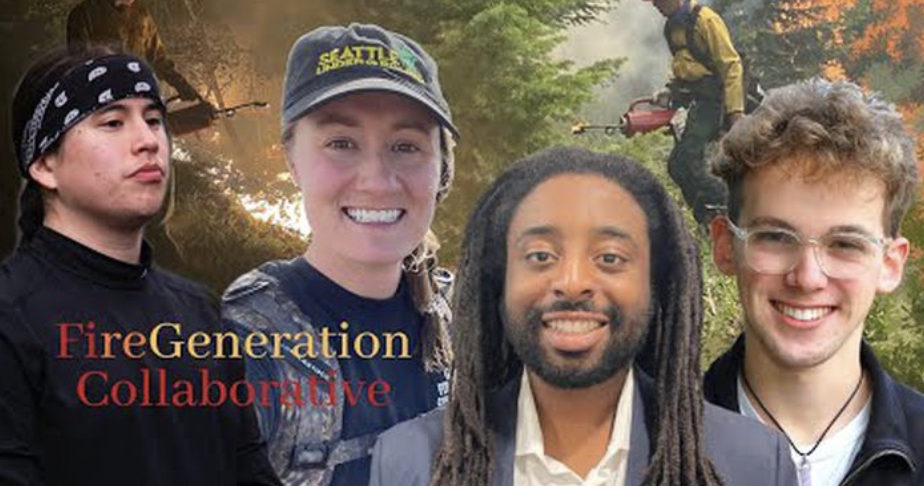2022-2023 Cohort
In recent years, communities across the United States have been experiencing a forest health and fuel management crisis. While recently unveiled wildfire risk management strategies (for example, USFS’s Confronting the wildfire crisis and California’s Wildfire and forest resilience action plan) detail ambitious plans, it is clear that their effective implementation will be challenging in the absence of a diverse, skilled, and future-ready forestry and fire workforce.
In response to this growing capacity gap in forest and fire management, the 2022-2023 Living with Fire Design Challenge supported three teams in reimagining forestry and fire workforce capacities for inclusive, equitable, and just wildfire risk management outcomes.
Selected teams received USD 20,000 each to complete projects over a period of 12 months. Read more about their project outcomes below!
Reimagining Community Wildfire Protection Planning in Nederland, Colorado
This project facilitated community-wide visioning exercises to inform an inclusive update to Nederland’s 2011 Community Wildfire Protection Plan (CWPP). The project engaged with the lived experiences, values, and perspectives of teens and young adults, indigenous people, unhoused people, and older adults.
Photo credit: Town of Nederland website
Reimagining Forestry and Fire Career Pathways for Justice-Impacted People in the Bay Area, California
This project brought together an interdisciplinary team of students, faculty advisors, and community partners to reimagine a workforce-led and community-centered transition to living and working with fire in California’s landscape. The project considered how workforce development and training programs can better serve justice-involved and systems-impacted people while meeting growing demands on the forestry and fire workforce.
Photo credit: Forestry and Fire Recruitment Program project website
Reimagining Fire Governance to Engage and Partner with Diverse Young People Nationwide
Through this project, the FireGeneration Collaborative is bringing together diverse underrepresented young people to reimagine roles and partnerships for wildfire risk management in ways that are inclusive, equitable, just, and future ready. Through a focus on governance, research, organizing, and education, this nation-wide collaborative is working to bridge the gap between next-generation fire practitioners and government agencies, by elevating diverse young people’s voices and experiences in federal and state wildland fire risk management policy, strategies, and decision-making.
Photo credit: FireGeneration Collaborative

2021 Cohort
In May 2021, four student-led interdisciplinary teams, three from California and one from Colorado, participated in the 2021 Living with Fire Design Challenge. See details on projects and teams below.
Each team was comprised of at least three students, one faculty advisor, and one community partner.
Each team received an award of USD 10,000, access to a highly experienced mentor network, and pathways to future funding opportunities.
The awards enabled teams to co-develop ‘reimagining living with fire’ projects with communities at high risk of wildfire impacts.
Teams had six months, from 1 June until 30 November 2021, to complete their projects.

Reimagining Community Wildfire Protection Planning in Ventura County, California
The Kindling Equity team focused on the meaningful inclusion of socially vulnerable communities in the Community Wildfire Protection Plan (CWPP) in Ventura County’s Wildland Urban Interface.
Photo Credit: David Goldstein, Eye on the Environment

Reimagining defensible space in Santa Barbara County, California
This project conducted convergence research on plant flammability and contributed science-informed recommendations on plant maintenance, species selection, and placement of fire adapted vegetation for homes in the Wildland-Urban Interface (WUI).
Photo Credit: Santa Barbara Fire Department

Reimagining community resilience in Gold Hill, Boulder County, Colorado
This project delivered a process of community-led reimagining of wildfire adapted ecosystems using a 100-acre forest thinning/meadow restoration project in Gold Hill, Colorado.
Photo Credit: Gold Hill Town

Inclusive evacuation planning for Marin County, California
This project contributed to community-centered research and visual design for more inclusive and equitable evacuation planning.
Photo Credit: Jason Weber, Chief, County of Marin Fire Department




